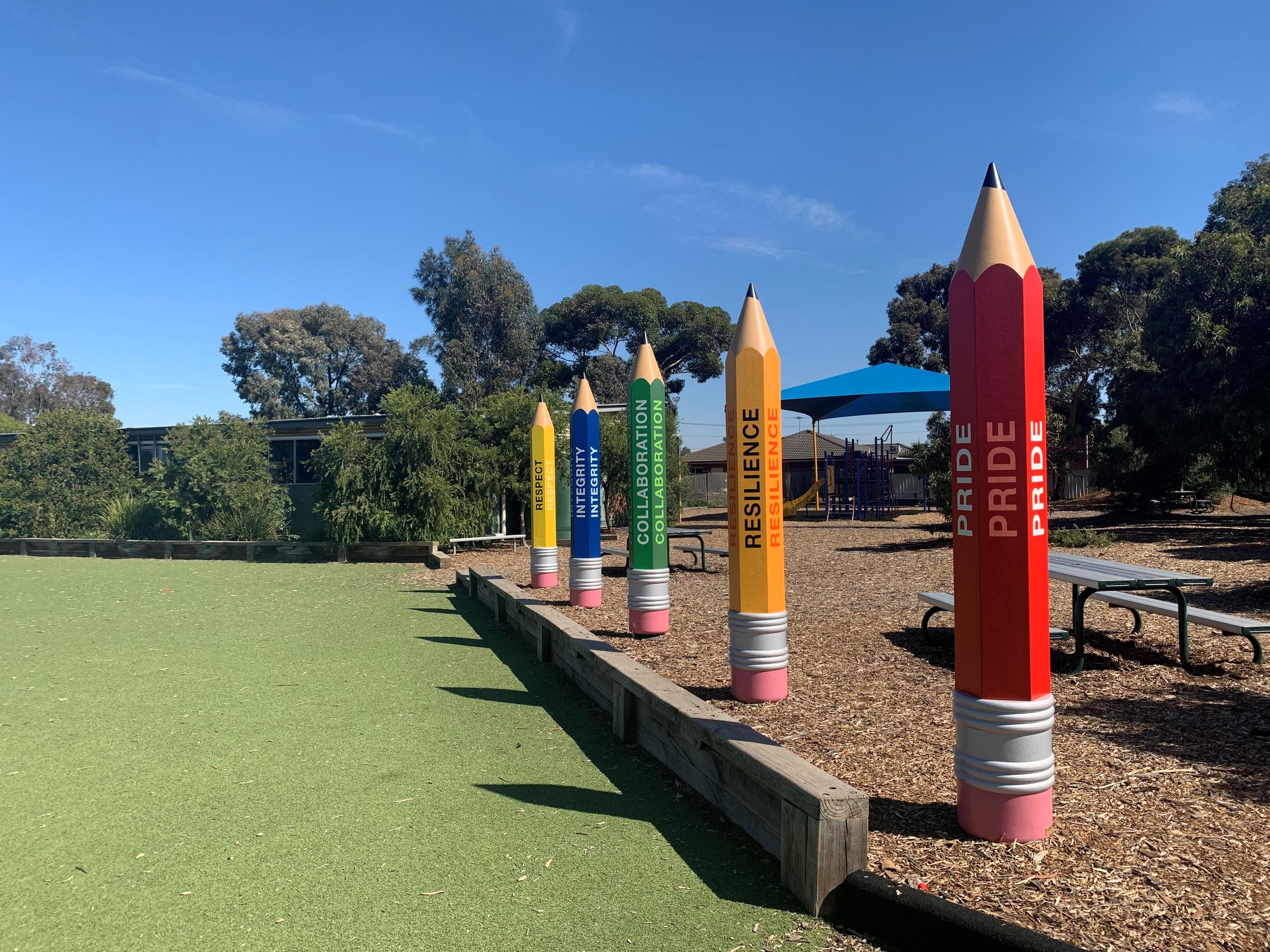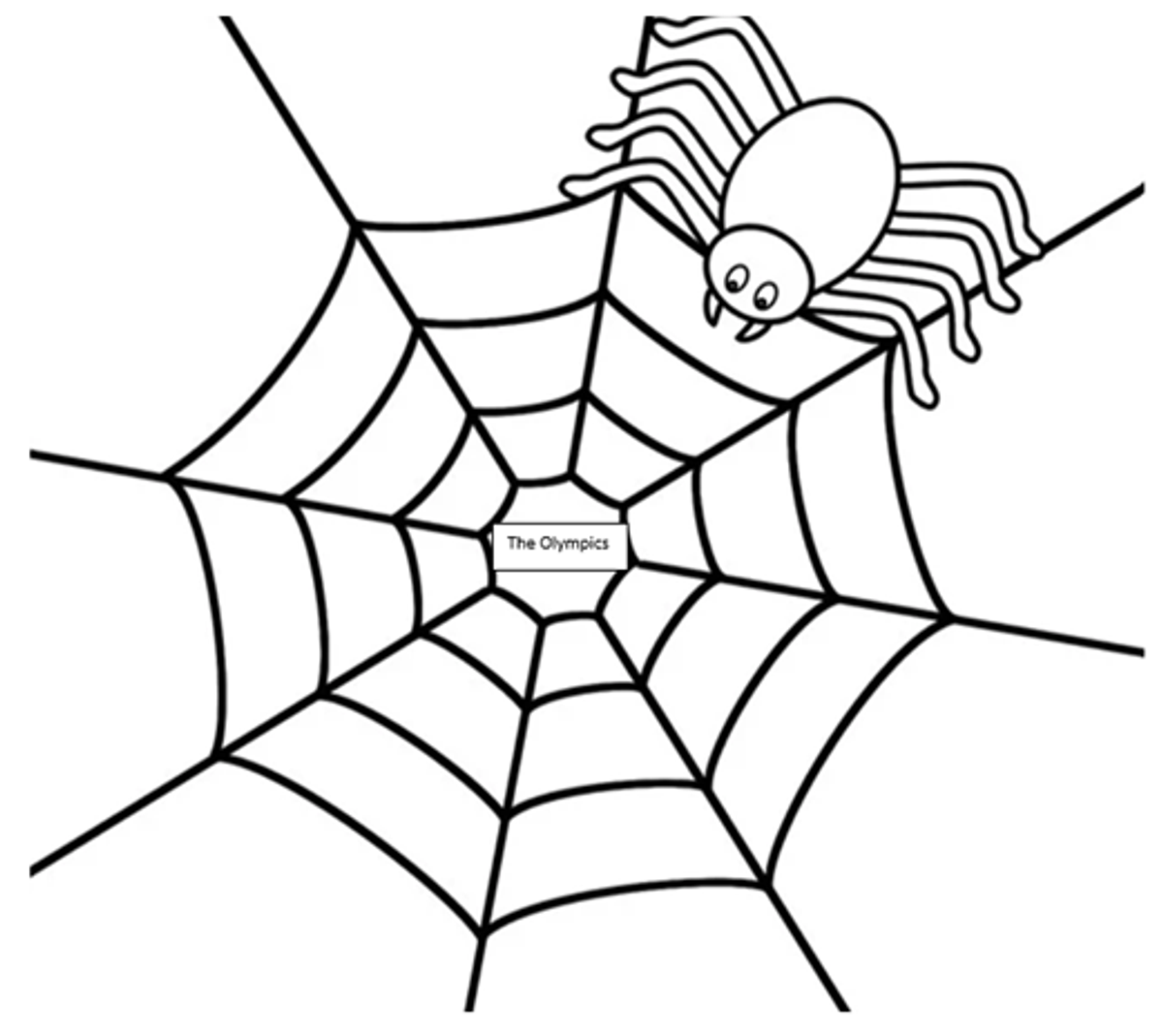Assistant Principal Report
Deanne Scott & Spira Antonopoulos

Assistant Principal Report
Deanne Scott & Spira Antonopoulos
Hello Everyone,
2023 Term 4 Challenge of the Week
It is great to see some completed challenges gathering in the challenge box. Students have told me that this challenge is difficult but fun. I am looking forward to reading them on Friday morning.
This week’s topic for the challenge is The Olympics.


The new challenge for this term is Word Web.
You need to find as many words as possible related to the topic/word in the centre of the web. You can continue the web as much as you can.
I will have an example of Word Web for people to view, just outside of the office, to help explain how to do.
You must collaborate with at least one other person (a friend, parent, classmate, etc) and no more than 3 other people. If you do not collaborate, you will not receive a Caught You Doing Right card for Collaboration.
Hard copies are available at the office for students.
Thank you,


Deanne Scott
Assistant Principal
READING @ DPWPS – Spira Antonopoulos
“The more that you read, the more things you will know. The more that you learn, the more places you’ll go.” – DR. SEUSS
Hello, parents, carers and students of the Deer Park West Primary School Community,
Below are some interesting facts and suggestions for parents and carers to assist with supporting reading at home.
Libraries
Research shows that school libraries and public libraries are fundamental to developing children as learners, teaching children the skills they need to follow curiosity, find information, and apply knowledge to their academic and personal lives. A library is truly integral to the learning processes. Help your child by visiting your public library.
Always establish responsible behaviours for your child in the library space and model these. Explicitly demonstrate responsible borrowing and returning of books and respect for all resources
Your child’s class has a scheduled time to visit the school library weekly. This visit provides your child with the opportunities to be immersed in rich literature along with the opportunity to borrow books to enjoy at home. Your child requires a library bag to borrow books and keep them safe.
How can you help your child become a great reader at home?
Parents should encourage children to think about what they know about topics that relate to the text, before during and after reading experiences (see examples below):
· Have you heard of these …... before?
· Does anyone know what this word means? [choose vocabulary that will come up in the text]
· This book is like [book name] that we read yesterday!
· Have you heard of …. before?
· Have you ever done …before?
· Where have you seen these?
· Was that like something we did before?
· This book was the same/different to [book name] wasn’t it?
· What did we learn from this book today?
Following are some comprehension strategies to help your child understand what they are reading:
Predicting
· Encouraging children to predict helps to build a sense of anticipation during shared book reading. When prompted, children learn to wonder and predict what might be coming next.
· Parents can encourage children to predict before, during and after the reading:
· I wonder what kind of book this is, can someone have a guess?
· Who is going to be in this book?
· What is this text going to be about?
· What might happen in the story?
· What might we learn from this book?
· I wonder what will happen next. What do you think?
· Why do you think …. will happen next?
· What do you think will be on the next page?
· But how will they [escape/get it back/find home etc.]?
· So, what do you think will happen, now the story is finished?
Visualising
Encouraging children to visualise the text using their five senses can support their comprehension of the text. When being read to, using an illustrated text, children are already provided rich visual and verbal information.
However, you can prompt your child to think about their other senses as the text is read, including:
· What sounds they can hear in their mind
· What smells are associated with the text
· What tastes might be associated with the text
· What they can imagine touching as the text is read.
Asking and answering questions
Parents / carers can also prompt children to ask questions about the text as it is read. Children can be encouraged to wonder, inquire, and clarify ideas as they arise in the text.
Parents / carers should model how to ask questions for example during the text Little Red Riding Hood, you can think aloud the following questions:
· 'Why has grandma got bigger ears than usual?’
· ‘Why has Little Red Riding Hood got birthday cake in her basket?’
· ‘Why is the wolf’s mouth-watering?'
While reading texts to children, Parents / carers can periodically stop and allow children to think up a question.
After modelling how to ask questions, you can prompt children to ask their own questions, and spark discussion.
An example discussion is below:
· Parents / carers: I wonder what is going on here…
· Child: Is that a puddle?
· Parents / carers: What do you think?
· Child: It’s wet.
· Parents / carers: Are puddles wet and muddy?
· Child: He fell in the puddle. It’s slippery.
· Parents / carers: It must be very slippery! He’s slipped into the puddle… And how does he look now?
In this example, when children ask questions parents / carers can often ask another question, instead of giving the answer straight away. This can encourage other children to think deeper, share their ideas, and make meaning collaboratively.
Summarising
This involves children learning to talk about the main ideas of a text. To support children’s ability to summarise texts, parents /carers can model how to talk through the main ideas from the text, and what the text is about.
For a story/narrative text, this involves discussing the start, middle, end of the story; for a non-fiction text, this involves talking about the main topic and ideas covered in the text and some important details or new knowledge.
Prompts that parents / carers can use to ask children for a summary of the text include:
· Stories/Narrative Texts:
· What happened in the story?
· What was the main event in the story?
· What happened in the end?
· How did the characters feel?
· What did the characters learn?
· Informative/expository texts:
· What was that book about?
· What was something new that we learnt?
· Tell me about what you liked in this book?
Useful Reading websites:
Epic Books has popular books for all reading levels. It is perfect for read-aloud, research projects, and independent reading. Epic can read many books out loud to the student, and a dictionary tool is built in! Students can have unlimited reading during school hours plus two extra hours to read outside of school per week. Epic: https://www.getepic.com/
Sunshine Online Australian series with real stories using words that children can read! The Sunshine Decodables program teaches children phonics skills in a sequential and systematic way so that they can learn the sounds (phonemes) and the letters that represent them (graphemes) and then practise and apply this knowledge through reading a text that makes sense. This ensures that every beginning reader will experience success in reading from their very first book! Sunshine Online: https://www.sunshineonline.com.au/
Thanking you for your ongoing support.


Spira Antonopoulos
Acting Assistant Principal